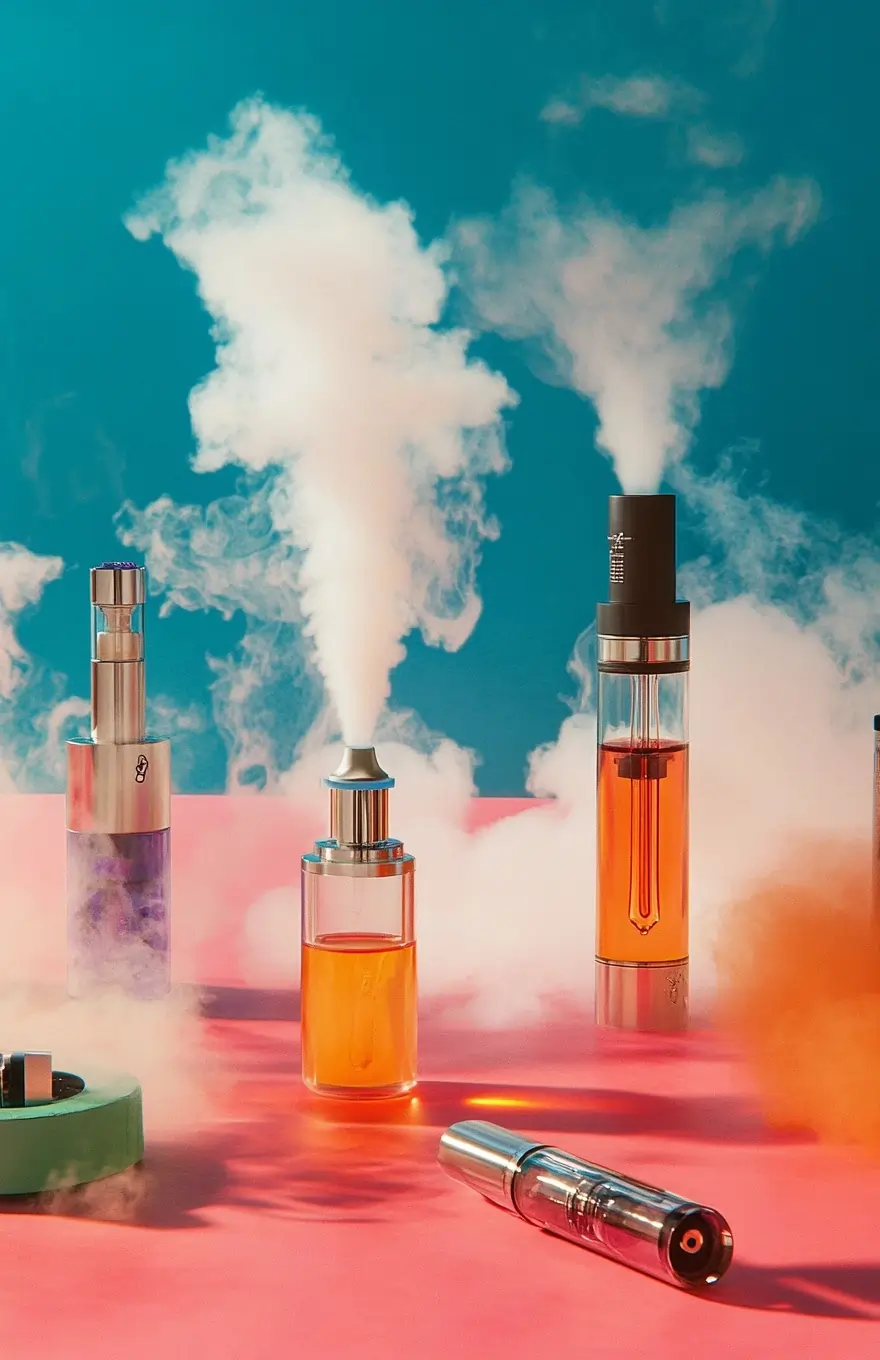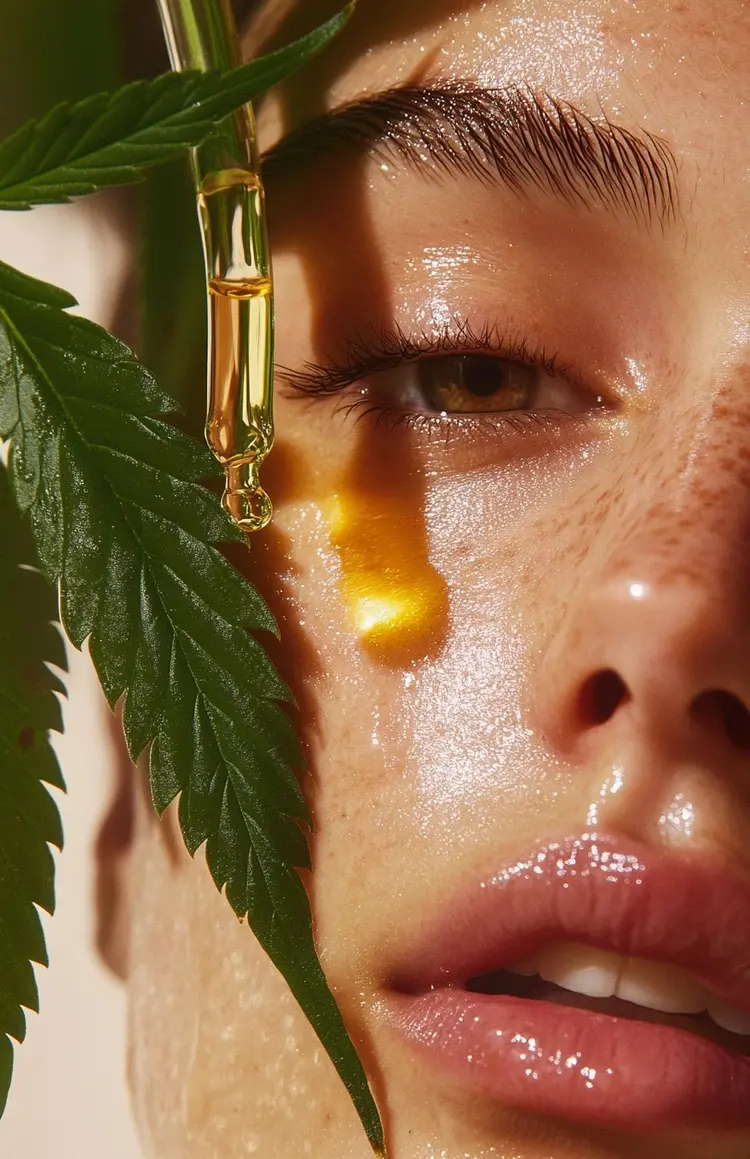

We’ve all been there: you’ve tried absolutely everything on the surface of the earth to try and control your acne breakouts. Acne-prone skin is not only about your physical appearance, but it also affects many individuals’ mental health. Acne treatments can be expensive and may not always provide the best results. In the skincare world, some things work, and some definitely don’t. But what about CBD oil for acne care?
CBD can aid skin irritations in many ways, and we’re here to explain how! Keep reading more if you want to learn about the possible benefits CBD oil can provide for your skin.
Acne is a very common skin condition that happens when hair follicles under the skin become clogged. This results in oil and dead skin cells plugging the pores, causing outbursts of lesions (pimples and zits) on the skin. It is common for these outbreaks to appear on the face but can also appear on the back, chest, and shoulders. For most people, acne tends to go away by the time they reach their thirties. In contrast, some individuals can struggle with it well into their forties and fifties! Everyone’s skin microbiome is different, and many factors can affect this.
Figuring out which type of acne you have is key to a successful treatment. Here are the three main types of acne:
![CBD Oil for Acne [How to Calm Redness & Improve Skin Naturally] 1 teen girl squeezing pimple in mirror](https://hollyweedcbd.com/wp-content/uploads/2022/02/teen-girl-squeezing-pimple-in-mirror.jpg)
About 80% of Americans suffer from acne at some point during their lives. 20% of said people have severe acne, leading to permanent physical and mental scarring. Acne vulgaris is the scientific term for acne, and while it affects one’s physical appearance, it takes a huge toll on an individual’s self-esteem. Acne is the leading cause for dermatologists’ visits, with most cases developing in adolescence.
As mentioned previously, there are many different reasons why someone may have acne. You may believe that the cause of your breakouts is solely based on your sensitive skin. While this may be part of it, there are a few things you should take into consideration. These may include diet, age, and even genetics. The leading causes are excess oil production, hair follicles clogged by dead skin cells, bacteria, and inflammation. The follicle may bulge, causing a whitehead.
On the other hand, a follicle may be open to the surface and darken, causing a blackhead. Blackheads may take the appearance of dirt being stuck in the pores when in reality, the pore is congested with bacteria and sebum, which turns brown when exposed to air.
Certain things may trigger or worsen acne; here are a few of them below!
Androgens are hormones that increase and boys and girls while they’re going to puberty. This causes the sebaceous glands to enlarge and produce more sebum. Hormonal changes during midlife (such as pregnancy and birth control) can lead to breakouts in women. It is important to keep in mind that there is no “standard normal” for the state of your skin, as it will change as you age, along with hormones.
The foods that you put into your body can affect your skin’s health. Certain foods raise your blood sugar more quickly than others. When your blood sugar rises quickly, it causes the body to release a hormone called insulin. Having excess insulin in your blood can cause your oil glands to produce more oil, increasing your risk for acne.
Some foods that trigger spikes in insulin include:
Eating low-glycemic foods made of complex carbohydrates may reduce your risk of developing acne. Complex carbohydrates are found in the following foods:
Yes, acne is the most common skin condition in the United States, affecting up to 50 million people annually. As much as those who suffer from acne may think that their skin condition is not the norm and that healthy skin is more prevalent, it is quite the opposite! As mentioned before, acne is most common among teenagers but can affect people of all ages. Causes of acne range and manifest themselves differently depending on the individual.
There are many ways to treat acne, some of which you can try at home! There are many ingredients in your pantry that have anti-inflammatory properties. Who said acne treatment has to be expensive? We want to remind you that nothing takes the place of a licensed and trusted dermatologist. If you experience any adverse effects such as extremely itchy skin, flaking skin, or any discomfort, seek out the guidance of a doctor or dermatologist.
We know you’ve heard about this one. Honey has long been used in skincare. Before you go out and purchase just ANY honey, it’s important to know what to look for, how to use it, and its possible results on the skin.
Honey is highly revered within the skincare community. It has antibacterial and antiseptic properties that may benefit oily and acne-prone skin. Honey is also a natural humectant, meaning it helps keep the skin moist without creating an excess of oil. Humectants draw moisture from the skin without replacing it. The best kind of honey for your skin is raw honey. It is packed with antioxidants, vitamins, and minerals, which all help protect and repair the skin.
This popular essential oil is extracted from the leaves of Melaleuca alternifolia, a tree native to Australia. Tea tree oil is well known for its ability to fight bacteria and reduce skin inflammation. With its anti-inflammatory properties, tea tree oil was also less drying and irritating on the skin than benzoyl peroxide.
Dealing with irritated skin can be frustrating and upsetting, and while the list of home remedies for acne can seem like a bottomless pit, CBD may provide a bit of solace! A study conducted in 2014 explored the effects of CBD on human sebocytes. These are the cells that create sebum. Researchers found that CBD prevented these cells from producing excess sebum. CBD also had substantial anti-swelling effects on the cells.
CBD may have many benefits for any skin condition with redness, swelling, dryness, or irritation. Manufacturers combine CBD with a carrier oil, such as hemp or coconut oil, to create CBD oil. You can purchase CBD oil or a range of CBD skin care products that incorporate CBD oil to use on your skin.
![CBD Oil for Acne [How to Calm Redness & Improve Skin Naturally] 2 hemp tincture in clear dropper](https://hollyweedcbd.com/wp-content/uploads/2022/02/hemp-tincture-in-clear-dropper.jpg)
CBD oil is one of the many products from the hemp plant! The hemp plant is high in CBD and very low in THC, the compound famously found in marijuana. CBD oil is extracted from the plant’s leaves, stalk, and flowers.
CBD interacts with the body’s cannabinoid receptors in a vast network called the endocannabinoid system (ECS). This system is responsible for regulating many important processes in the body including various cardiovascular, nervous, and immune system functions. CBD has been known to help support the ECS with easing physical discomfort, promoting better sleep, and even regulating a natural appetite.
As mentioned previously, CBD oil has many great benefits. The effects of CBD on the ECS include promoting a smooth transition into bodily relaxation. The effects of this compound are subtle and cannot be compared to the intense effects of THC. CBD products come in all shapes and sizes, but CBD oil is one of the most popular ways to take CBD. You can take the oil sublingually, dropping a few drops under your tongue, or you can drop a few drops into your morning coffee or food!
Here are a few added benefits of taking CBD oil:
Yes! CBD oil can be beneficial for acne and other skin conditions. It can help by reducing redness, moisturizing dry, flaky skin, calming irritation, and promoting overall skin health. It may also help reduce sebum production. Sebum clogs pores and causes breakouts. You can apply CBD topical, directly to the breakout, or take it orally.
While there is research on CBD taken orally and its effect on combating acne, most reports are done with people using CBD topically. This is usually in the form of CBD lotion. It is important to be mindful of the ingredients used in the CBD lotion you are thinking of purchasing. This way, you ensure that no harmful ingredients may cause further irritation.
Skin health is at the top of everyone’s list! We have seen how elaborate those skincare routines can get. Believe it or not, less is more. When it comes to finding top-quality CBD oil, any place can sell you on it, but it’s figuring out whether their products are actually what they say they are. It is also important to research the brand you are purchasing from. All reputable brands provide Certificates of Analysis (COAs) from a third-party lab. These are all important factors to consider when treating acne with any product! Research is key! But, we happened to do it all for you.
Your one-stop shop for all things CBD should always be Hollyweed. Do you know all those requirements we just told you to look out for when purchasing CBD? Well, let’s just say we tick all the right boxes!